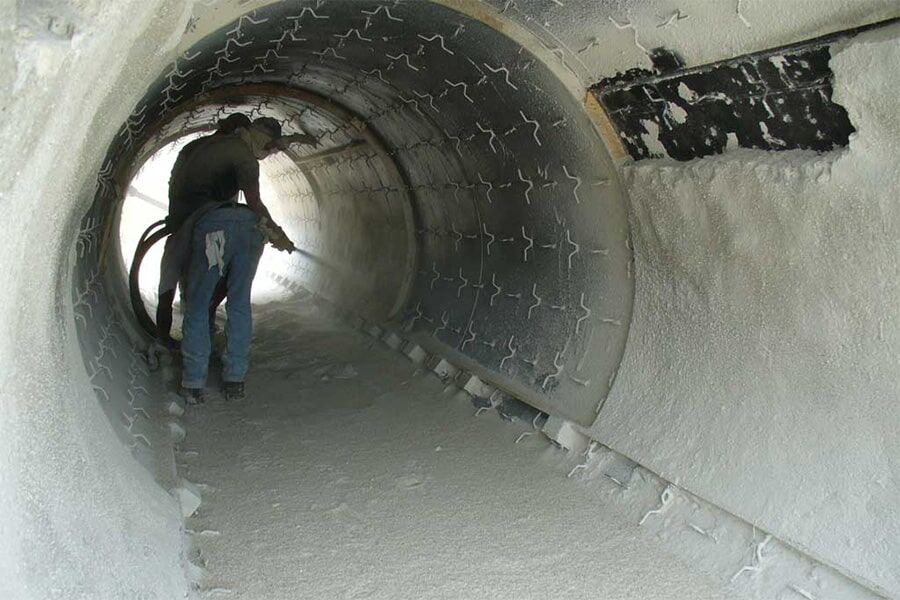
Chemical Resistant Refractories: Properties and Applications
Chemical Resistance refractories play a crucial role in various industrial processes where materials are exposed to aggressive chemicals and/or extreme heat. These refractories are specifically designed to withstand the corrosive effects of acids, alkalis, molten metals, and other harsh substances encountered in industrial applications. In this article Wm. Neundorfer and Co. will explore the properties, types, and applications of chemical resistant refractories.
Properties of Chemical Resistant Refractories:
Corrosion Resistance:
Chemical resistant refractories exhibit excellent resistance to corrosion from acids, alkalis, and other corrosive substances. This property ensures the longevity and reliability of refractory linings in industrial settings.
Thermal Stability:
These refractories maintain their structural integrity and mechanical strength at high temperatures, which is essential for applications where extreme heat is encountered. This property prevents the refractory lining from undergoing structural changes or degradation during exposure to elevated temperatures.
High Density:
Chemical resistant refractories often have high-density levels, contributing to their durability and resistance to chemical attacks. This density is crucial for maintaining the physical and chemical stability of the refractory material over extended periods.
Low Porosity:
Low porosity is a key characteristic that helps prevent the penetration of corrosive liquids into the refractory material. This property enhances the resistance of chemical resistant refractories to aggressive chemicals.
Types of Chemical Resistant Refractories:
Acid Resistant Refractories:
-
-
- Designed to withstand the corrosive effects of acids, such as sulfuric acid and hydrochloric acid. Common materials include acid-resistant bricks and tiles.
-
Alkali Resistant Refractories:
-
-
- These refractories are resistant to the corrosive action of alkaline substances. Magnesia-based materials are often used due to their resistance to alkali attacks.
-
Phosphate-Bonded Refractories:
-
-
- These refractories are bonded with phosphate compounds, providing resistance to both acids and alkalis. They find applications in industries where exposure to a wide range of corrosive substances is common.
-
Silicon Carbide Refractories:
-
-
- Silicon carbide-based refractories are known for their excellent chemical resistance and high-temperature stability. They are often used in applications involving molten metals and harsh chemical environments.
-
Applications of Chemical Resistant Refractories:
Chemical Industry:
-
-
- Chemical resistant refractories are extensively used in the construction of reactors, vessels, and storage tanks where aggressive chemicals are processed.
-
Metal Smelting and Foundries:
-
-
- These refractories are employed in furnaces and crucibles for the smelting of metals, providing resistance to molten metals and metal oxides.
-
Petrochemical Industry:
-
-
- Refractory linings in petrochemical facilities, such as those found in catalytic crackers and fluidized bed reactors, require chemical resistant materials to withstand harsh operating conditions.
-
Waste Incineration Plants:
-
-
- Chemical resistant refractories are used in the construction of incinerators and furnaces for the safe disposal of hazardous waste materials.
-
Chemical resistant refractories are indispensable in industries where materials are subjected to harsh chemical environments and high temperatures. Their ability to withstand corrosion, maintain thermal stability, and resist the penetration of aggressive substances makes them ideal for many applications across the chemical, steel, and petrochemical industries.
For more information or details on how we can help you select the right equipment for your application, contact Wm Neundorfer & Co today.
We have the expertise and experience to ensure you get the advice and recommendations you require for your specific application.